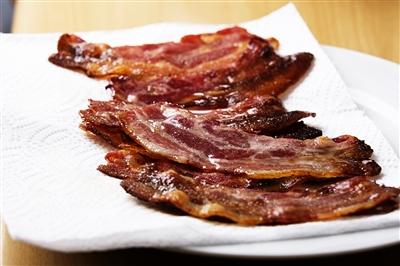The best diet for prostate cancer prevention

Prostate cancer is one of the leading causes of cancer deaths among men and, like most cancers, many of its most significant risk factors are ones that can't be changed—factors like age, gender, family health history and even where you live or work.
One change you can make? How you eat.
"Exactly how big of a role diet has in prostate cancer risk remains to be seen, but we know that certain foods—like red meat—have been tied to a greater risk for the disease. Adjusting your diet is an easy way to manage your prostate cancer risk," says Benjamin Jacobs, MD, a hematologist and oncologist at Riddle Hospital, part of Main Line Health.
What you need to know about nutrition for prostate health

- Lean meat instead of red or processed meat. Burgers, sausage, bacon, hot dogs, pork, beef and lunch meat have been linked to prostate cancer risk. Look for leaner cuts of meat or healthier options of your favorite foods instead, like turkey bacon, chicken or turkey sausage and black bean burgers.
- Non-dairy or low-fat alternatives to your favorite dairy products. Many new non-dairy or low-fat alternatives to your favorite dairy products can make this an easier switch. Try vegan versions of your favorite cheese, or kefir or low-fat Greek yogurt in lieu of flavored ones. Non-dairy options like almond, oat or soy milk can take the place of traditional milk or cream in your coffee.
- Fruits and vegetables instead of crackers or chips. Satisfy a mid-afternoon craving with produce instead of a trip to the vending machine. If you prefer a sweet treat, try a banana with peanut butter, grapes, berries or some melon with shredded coconut. If a salty snack is more your taste, try a slice of avocado toast with sea salt and lemon juice or an apple or celery, which can provide the crunch you're looking for.
You can start to incorporate other healthy behaviors, too, like limiting how many alcoholic or sugar-sweetened beverages you drink, choosing whole grains over refined products and swapping fresh herbs instead of salt for seasoning.
Additional research is needed to determine if ingredients and nutrients like lycopene (found in tomatoes and tomato products) and soy can reduce your prostate cancer risk but, in the meantime, making the above changes will help you manage your risk for prostate cancer and improve your overall health.
The best way to reduce prostate cancer risk
Unfortunately, there is no treatment, technology or prevention strategy that can completely eliminate your prostate cancer risk. A prostate cancer screening is still the most effective way to detect and treat cancer in its earliest stages.

If you have questions about prostate cancer screenings or about your prostate health, make time to see your health care provider, especially if it's been awhile since your last appointment. A provider who knows your health habits and personal and family health history can help you determine whether or not you should be screened.
Main Line Health serves patients at hospitals and health centers throughout the western suburbs of Philadelphia. To schedule an appointment with a specialist at Main Line Health, call 1.866.CALL.MLH (225.5654).